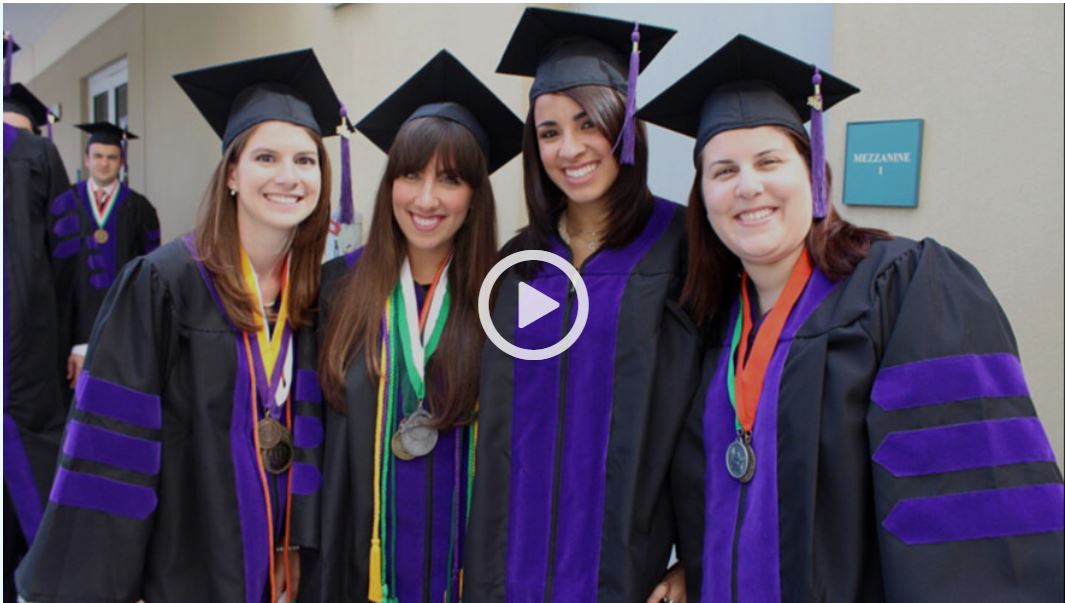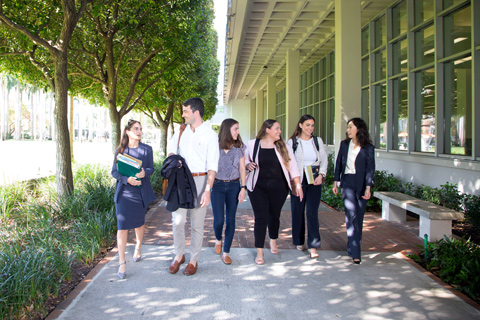Admission Standards
The University of Miami School of Law seeks to enroll highly qualified students who would like to transfer from other American Bar Association-approved law schools. Applications are reviewed as soon as all required documents have been received.
Prior performance in law school, undergraduate records, and LSAT/GRE scores will be considered in the admissions process. Miami Law transfer applicants must have at least a 3.00 law school GPA or be in the top third of their class at an ABA-accredited law school. Exceptions may be made for students from highly competitive institutions.
The usual number of acceptable transfer credits is 27 to 30. The maximum number of acceptable transfer credits is 32. If your current first-year curriculum offers less than 27 credits, your application will be considered. While there is no part-time program offered at Miami Law, competitive transfer applicants from part-time programs who have completed their entire first-year, part-time curriculum at their institution may be considered for transfer into the full-time division. In order to earn a Juris Doctor degree from the University of Miami School of Law, a minimum of 56 additional credits over four full-time semesters is required. An applicant who has earned more than 32 credits is ineligible to apply as a transfer student and should apply as a visiting student.
Application Deadline, Instructions, and Requirements
Students are encouraged to submit their applications and all supporting documents as early as possible. Transfer applications are only accepted for fall entry. The application opens on November 1 and closes on July 31. Admission decisions are made on a rolling basis.
Miami Law's application is available online though the Law School Admission Council (LSAC). All applicants are required to register for LSAC's Credential Assembly Service (CAS). This easy and efficient option allows applicants to complete and save their application until they are ready to submit it. The detailed instructions are outlined here. Although applying online through LSAC is the preferred method, Miami Law will accept hard copy applications.
1. Application Form
2. Transcripts
3. Personal Statement
4. Résumé
5. Class Rank and Letter of Good Standing
6. Letter of Recommendation (preferably from a law school professor)
7. TOEFL or IELTS (for applicants whose native language is not English and whose undergraduate education is from outside the U.S.)
Transfer Admissions 101
Learn about the transfer application process and hear the answers to FAQs by watching this video.

Cost of Attendance
The cost of attendance is outlined here. Visit our Financing Your Legal Education website for financial aid information. There are no merit-based scholarships available for transfer students.
Law Review and Moot Court Board
Although transfer students are not automatically eligible for membership on a law review or moot court board based on class rank at another law school, they may still be able to participate in these activities at Miami Law. Any transfer student interested in joining one of our law journals should contact Farah Barquero, Director of Law Reviews and Moot Court Programs, at fbarquero@law.miami.edu.






